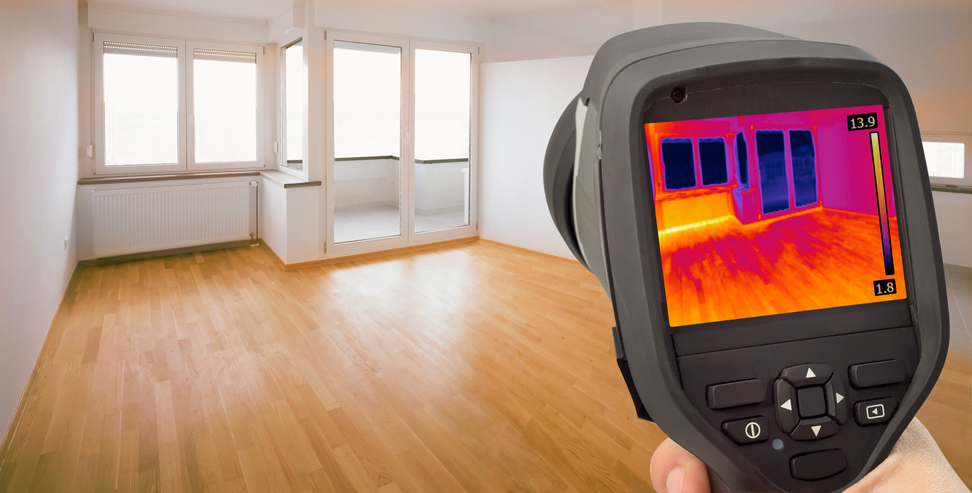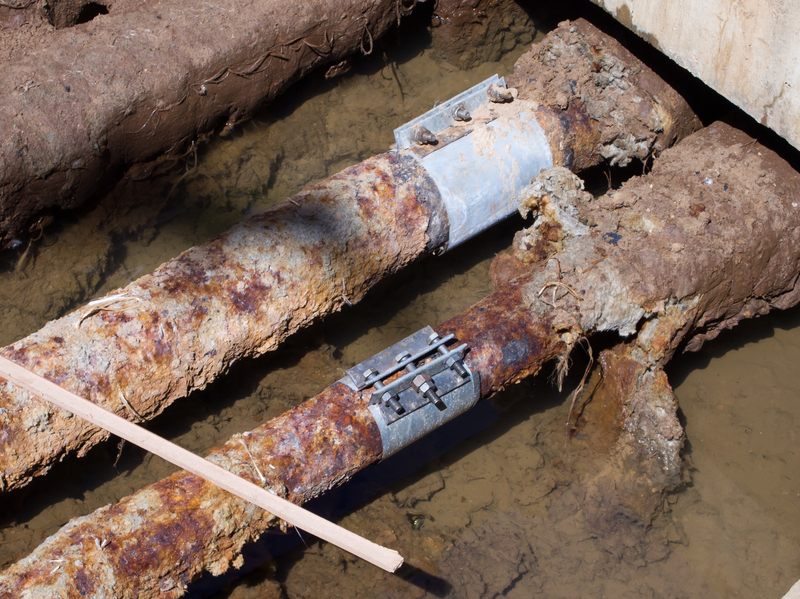Materials 30 PDH Discount Package
Courses in this Package
Basement Insulation Basics (T03-006)
Coating Application and Inspection (T03-001)
Coating Types and Selection (T06-002)
Corrosion: Overview (H04-001)
Home Insulation Basics (T03-002)
Overview of Insulation Materials (T05-004)
Pre-Coating Surface Preparation (T02-003)
Thermal Spraying Technology and Applications (T04-002)

This online engineering PDH course describes the good practices for insulating basements in new and existing homes.
There are many considerations to account for when making decisions about insulation. Costs, codes, energy efficiency, pest control, moisture management; the list goes on. Coupled with the large variety of insulation options including mineral fiber, mineral wool, foam boards, foam sprays, polyisocyanurate, etc., it is important to be aware of what options best suit a project’s particular conditions.
Codes are also constantly changing. While it is beyond the scope of this course to provide a comprehensive view of all basement insulation codes, it does discuss many common codes relevant to basement insulation projects, as well as changes to codes in recent years.
This 3 PDH online course is applicable to engineers, energy professionals and construction personnel who are interested in gaining a better understanding of basement insulation applications.
This PE continuing education course is intended to provide you with the following specific knowledge and skills:
- Understanding what considerations should be taken into account when looking at basement insulation options
- Familiarizing with the variety of insulation options
- Understanding the problems associated with the choice of insulation
- Familiarizing with codes which must be met for projects involving basement insulation
Upon successful completion of the quiz, print your Certificate of Completion instantly. (Note: if you are paying by check or money order, you will be able to print it after we receive your payment.) For your convenience, we will also email it to you. Please note that you can log in to your account at any time to access and print your Certificate of Completion.

This online engineering PDH course presents the technologies, techniques, advantages and limitations, equipment, typical coating types involved, and safety considerations for each type of application method.
The choice of an application method depends on the type of coating to be applied, the type and size of surface to be coated, and governing environmental regulations. There are various methods of coating application, including brush application, roller application, conventional spray, high volume-low pressure spray, airless spray, plural component spray, and electrostatic spray.
Approximately 85 percent of all premature coating failures are a result of poor surface preparation, inadequate mixing, thinning, and/or poor coating application. Onsite quality control inspection during surface preparation and coating application procedures can help prevent failures of these types. Proper inspection techniques must be combined with knowledgeable instrument use, good common sense, and thorough documentation of work activities and inspection checkpoints to help ensure specification compliance. The amount of inspection and the specific inspection checkpoints will vary with the type and size of the coating project. This course presents eleven quality control inspection procedures as follows:
- Pre-surface preparation inspection
- Ambient conditions
- Compressed air cleanliness
- Surface profile
- Surface cleanliness
- Paint storage, mixing, and thinning procedures
- Application techniques
- Wet and dry coating thickness
- Pinhole detection
- Adhesion
- Cure
This 3 PDH online course is applicable to engineers, design and construction personnel, and other technical professionals who are interested in gaining a better understanding of coating application and inspection.
This PE continuing education course is intended to provide you with the following specific knowledge and skills:
- Methods of coating application
- Documentation of coating applications
- Pre-surface preparation inspection
- Measurement of ambient conditions
- Assessment of compressed air cleanliness
- Measurement of surface profile
- Evaluation of surface cleanliness
- Paint storage, mixing, and thinning
- Measurement of wet coating thickness
- Nondestructive measurement of dry coating thickness
- Destructive measurement of dry coating thickness
- Cleanliness and time (cure) between coats
- Holiday/pinhole detection
- Adhesion testing and evaluation
In this professional engineering CEU course, you need to review Chapters 8 and 9 of the “Painting: New Construction and Maintenance” engineering manual, published by the United States Army of Corps of Engineers (USACE), Publication Number EM 1110-2-3400.
Upon successful completion of the quiz, print your Certificate of Completion instantly. (Note: if you are paying by check or money order, you will be able to print it after we receive your payment.) For your convenience, we will also email it to you. Please note that you can log in to your account at any time to access and print your Certificate of Completion.

This online engineering PDH course presents each type of coating resin or binder categorized by its film-forming mechanism, different types of pigments, and the various solvent families. It also discusses drying oils which are an integral part of some coating formulations, as well as, driers that aid in the drying reaction. Furthermore, it describes miscellaneous additives that are formulated into many coatings for specific purposes. It also provides guidance on powder coatings, thermal spray organic and inorganic coatings, and galvanizing tapes and wraps.
This course also presents a systematic approach to coating selection for new construction and maintenance painting. It details the criteria for selecting a coating system based on the service environment(s), surface preparation requirements, and options for coating application. Finally, it discusses other considerations such as VOC concerns, coating cost, supplier recommendations, ease of application, and maintainability.
This 6 PDH online course is applicable to engineers, design and construction personnel, and other technical professionals who are interested in gaining a better understanding of coating types, characteristics and selection.
This PE continuing education course is intended to provide you with the following specific knowledge and skills:
- Familiarizing with the various types of film-forming mechanisms
- Understanding how resins (binders) are formed and their underlying pigments
- Learning about drying oil coatings and their corresponding driers
- Understanding the function of solvents in coatings
- Learning about the various additives and their purposes
- Understanding zinc-rich coatings vs. powder and their applications
- Understanding the environmental impacts of volatile organic compounds
- Understanding the process of thermal spray and galvanized coatings
- Learning about how to protect piping and tubular structural shapes with tapes and wraps
- Determining the criteria for selecting a coating system
- Understanding the degree of exposure to atmospheric elements
- Selecting coating systems for ferrous components in fresh water vs. seawater
- Selecting coating systems for black iron and steel pipes
In this professional engineering CEU course, you need to review Chapters 4 and 5 of the "Painting: New Construction and Maintenance" engineering manual, published by the United States Army of Corps of Engineers (USACE), Publication Number EM 1110-2-3400.
Upon successful completion of the quiz, print your Certificate of Completion instantly. (Note: if you are paying by check or money order, you will be able to print it after we receive your payment.) For your convenience, we will also email it to you. Please note that you can log in to your account at any time to access and print your Certificate of Completion.

This online engineering PDH course provides basic information on the chemical interaction taking place during the corrosion process between the environment and the corroding metal. It also describes preventive measure to minimize or control the corrosion process.
Uncontrolled corrosion can cause many serious problems. Corrosion occurs continuously, and every metal in every facility is subject to some type of corrosion. Even though corrosion cannot be eliminated, it can be controlled.
This 4 PDH online course is applicable to chemical and environmental engineers, design and construction personnel, technical staff and facility operators who are interested in gaining a better understanding of the theory of corrosion.
This PE continuing education course is intended to provide you with the following specific knowledge and skills:
- Corrosion theory
- General corrosion
- Crud and galvanic corrosion
- Specialized corrosion
In this professional engineering CEU course, you need to review Module 2, "Corrosion" of the Department of Energy Publication DOE-HDBK-1015/1-93, "Chemistry".
Upon successful completion of the quiz, print your Certificate of Completion instantly. (Note: if you are paying by check or money order, you will be able to print it after we receive your payment.) For your convenience, we will also email it to you. Please note that you can log in to your account at any time to access and print your Certificate of Completion.

This online engineering PDH course provides guidance on how insulation works, what different types of insulation are available, and how much insulation is generally required based on climatic conditions.
Heating and cooling account for 50% to 70% of the energy used in the average American home. Inadequate insulation and air leakage are leading causes of energy waste in most homes. Proper insulation:
- saves money and our nation's limited energy resources {C}
- makes your house more comfortable by helping to maintain a uniform temperature throughout the house
- makes walls, ceilings, and floors warmer in the winter and cooler in the summer
The amount of energy a homeowner can conserve will depend on several factors:
- local climate
- size, shape, and construction of the house
- living habits of the home occupants
- type and efficiency of the heating and cooling systems
- type of fuel being used
Once the energy savings have paid for the installation cost, energy conserved is money saved, and saving energy will be even more important as utility rates go up.
This 3 PDH online course is applicable to engineers, energy professionals and construction personnel who are interested in gaining a better understanding of insulation applications in a variety of settings and their corresponding benefits.
This PE continuing education course is intended to provide you with the following specific knowledge and skills:
- Understanding of how insulation works
- Learning about what kind of insulation is best
- Learning about how to insulate a new house versus adding insulation to an existing one
- Learning about air sealing, moisture control and ventilation
- Understanding the various insulation installation options and challenges
In this professional engineering CEU course, you need to review the course document titled “Insulation Basics” prepared by the Department of Energy, Publication No. DOE/CE-0180 (2008).
Upon successful completion of the quiz, print your Certificate of Completion instantly. (Note: if you are paying by check or money order, you will be able to print it after we receive your payment.) For your convenience, we will also email it to you. Please note that you can log in to your account at any time to access and print your Certificate of Completion.

This online engineering PDH course provides an overview of insulation materials including their properties, selection, applications and benefits.
Prevention of heat loss by application of insulation is the simplest method of achieving substantial economies in energy. Some estimates have predicted that insulation in US industry alone saves approximately 200 million barrels of oil every year. The other benefits include the improved productivity, enhanced environmental quality, personal safety, process control, reduction in noise levels and also the fire safety.
The most important characteristics of an insulation material is low thermal conductivity, low tendency toward absorbing water, and of course the material should be inexpensive. The type of insulation selected should be able to withstand whatever conditions it will experience without degradation. In process industry, the most common insulators are various types of calcium silicate or fiberglass. Calcium silicate is generally more appropriate for temperatures above 225°C (437°F), while fiberglass is generally used at temperatures below 225°C (437°F).
This 5 PDH online course is aimed at mechanical, chemical & process engineers; system design engineers working in process, manufacturing and engineering industries; energy auditors, operational & maintenance personnel, health & safety personnel and loss prevention engineers.
This PE continuing education course is intended to provide you with the following specific knowledge and skills:
- Understanding the application, characteristics and benefits of insulation to industry
- Learning about the key properties of thermal insulation products
- Understanding the selection aspects of insulating materials
- Learning about the organic & Inorganic type of insulation materials
- Learning how to classify of insulting materials on hot and cold surfaces
- Familiarizing with the forms and shapes of insulating materials
- Learning about insulation finishes, vapor retarders and weather barriers
- Understanding the method of installation using hangers and supports
- Familiarizing with the recommended best practices, applicable codes & standards
- Knowing the application areas such as pipelines, vessels, stacks, furnaces, kilns etc.
- Learning how to conserve energy
- Understanding the concept of economic thickness of insulation and selection alternatives
In this professional engineering CEU course, you need to review the course document titled “Overview of Insulation Materials”.
Upon successful completion of the quiz, print your Certificate of Completion instantly. (Note: if you are paying by check or money order, you will be able to print it after we receive your payment.) For your convenience, we will also email it to you. Please note that you can log in to your account at any time to access and print your Certificate of Completion.

This online engineering PDH course describes surface preparation standards, common methods of surface preparation, and abrasive type and selection methods.
Surface preparation is the key factor in determining the success of a protective coating system. The equipment and techniques that can be used to achieve the desired surface cleanliness and roughness (profile) vary considerably. Traditional methods of surface preparation are now accompanied by new, innovative methods that have evolved mainly because of the issues surrounding the safe removal of lead-containing coatings from industrial structures. The ultimate objective of surface preparation is to create proper adhesion of a coating over an underlying substrate.
This 2 PDH online course is applicable to engineers, design and construction personnel, and other technical professionals who are interested in gaining a better understanding of surface preparation prior to coating applications.
This PE continuing education course is intended to provide you with the following specific knowledge and skills:
- Common methods of surface preparation
- Abrasive type and selection
- Surface preparation standards and specifications
In this professional engineering CEU course, you need to review Chapter 7 of the "Painting: New Construction and Maintenance" engineering manual, published by the United States Army of Corps of Engineers (USACE), Publication Number EM 1110-2-3400.
Upon successful completion of the quiz, print your Certificate of Completion instantly. (Note: if you are paying by check or money order, you will be able to print it after we receive your payment.) For your convenience, we will also email it to you. Please note that you can log in to your account at any time to access and print your Certificate of Completion.

This online engineering PDH course presents an overview of thermal spray technology and discusses thermal spray coating materials, processes, specifications, selection, surface preparation, application, inspection and testing, sealing, maintenance, and safety. This course will help readers to understand the different surface coating techniques for enhancing service life of their assets, boosting productivity and capacity of their machinery.
Most manufacturing and industrial equipments suffer heavy wear rates owing to their service conditions. Thermal spray coatings impart high-quality wear resistant properties to the base metal, which the base materials do not necessarily have. Thermal spraying is a surface coating technology by which metallic or nonmetallic materials are deposited in a molten or semi-molten condition onto a base metal surface to optimize its characteristics and to protect against wear, abrasion, corrosion and/or erosion. Numerous combinations of base material and coating material are possible.
This 4 PDH online course is aimed at mechanical engineers, process engineers, facility managers, operational and maintenance personnel responsible for design and upkeep of equipment.
This PE continuing education course is intended to provide you with the following specific knowledge and skills:
- Understanding the fundamental principles of thermal spray coatings
- Learning the various types of thermal spray materials
- Learning thermal spray coating cost and service life
- Selecting the proper thermal spray coating for different service environments
- Learning the different surface preparation techniques
- Familiaring with thermal spray coating applications
- Sealing and painting of thermal spray coatings
- Inspection and testingof tThermal spray coating
- Qualification of thermal spray applicator and equipment
- Maintenance of thermal spray coatings
- Taking safety precautions
- Understanding the environment and worker protection regulations
In this professional engineering CEU course, you need to review the U.S. Army Corps of Engineers, Publication 1110-2-3401, "Thermal Spraying: New Construction and Maintenance".
Upon successful completion of the quiz, print your Certificate of Completion instantly. (Note: if you are paying by check or money order, you will be able to print it after we receive your payment.) For your convenience, we will also email it to you. Please note that you can log in to your account at any time to access and print your Certificate of Completion.